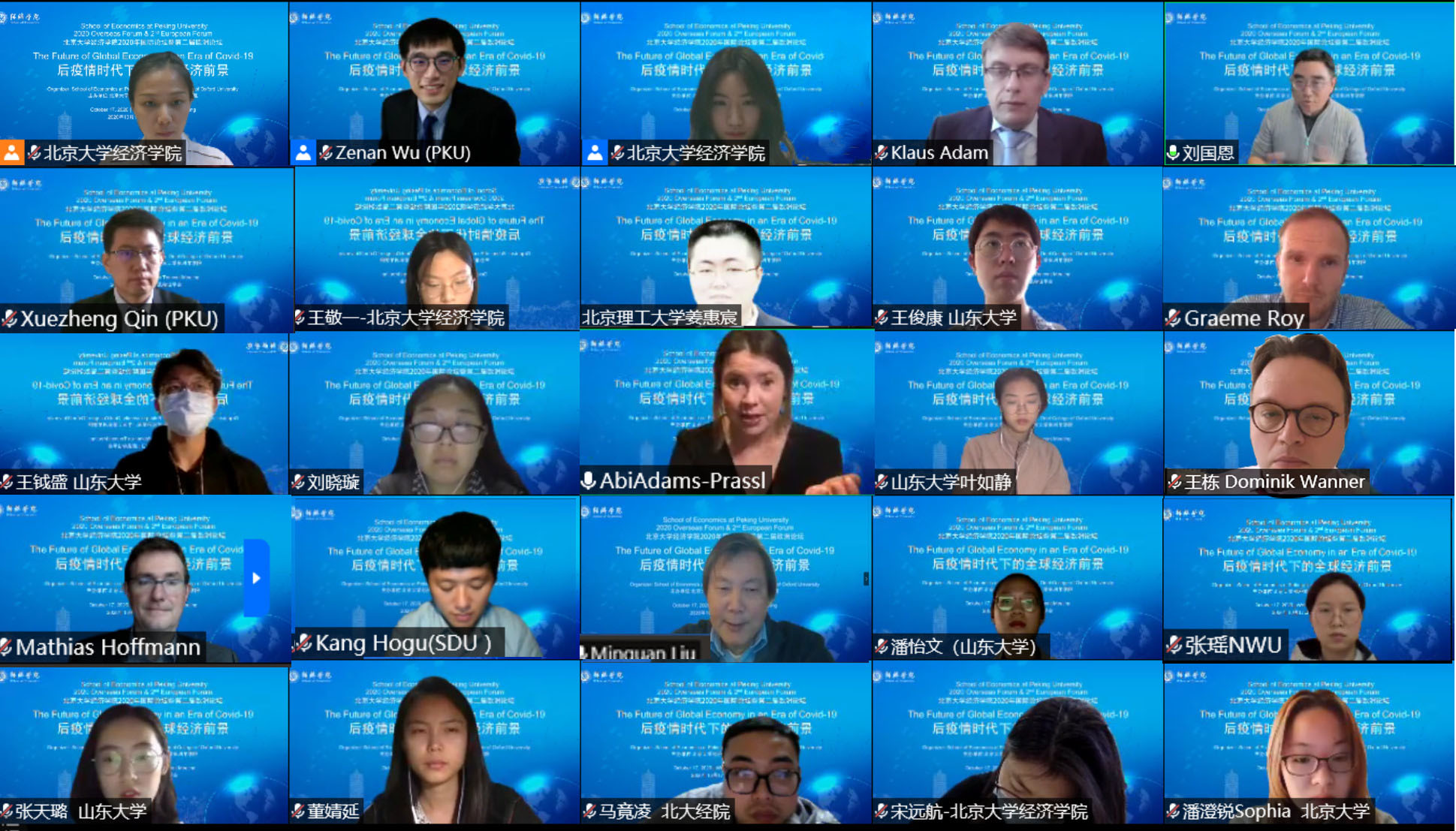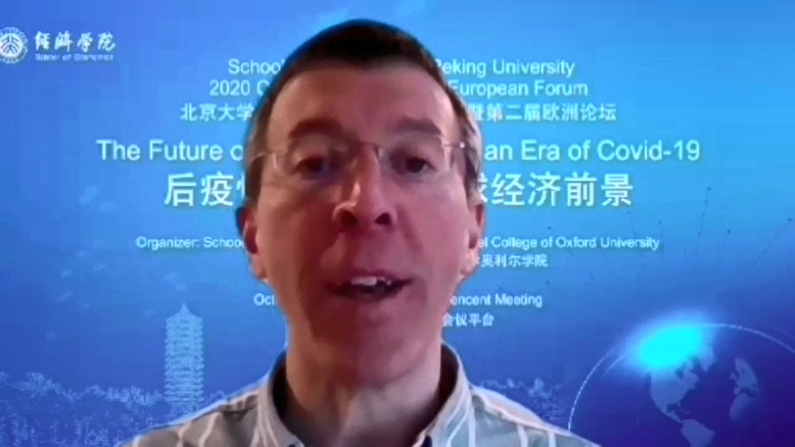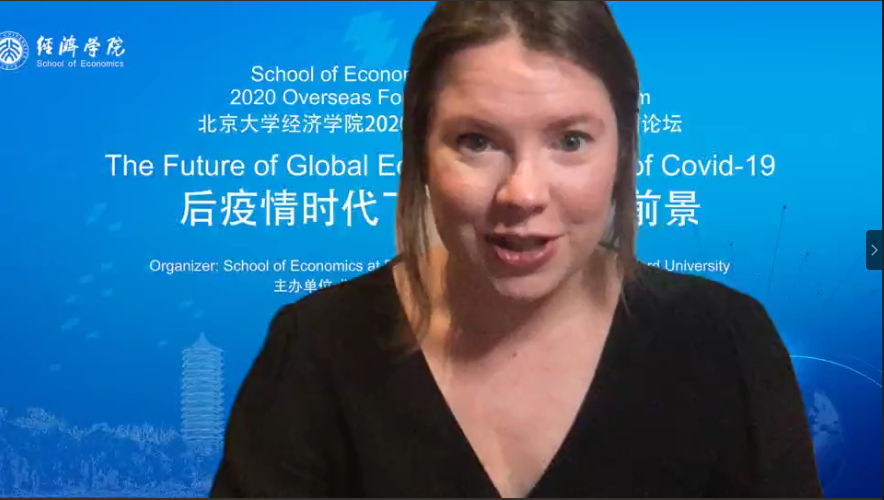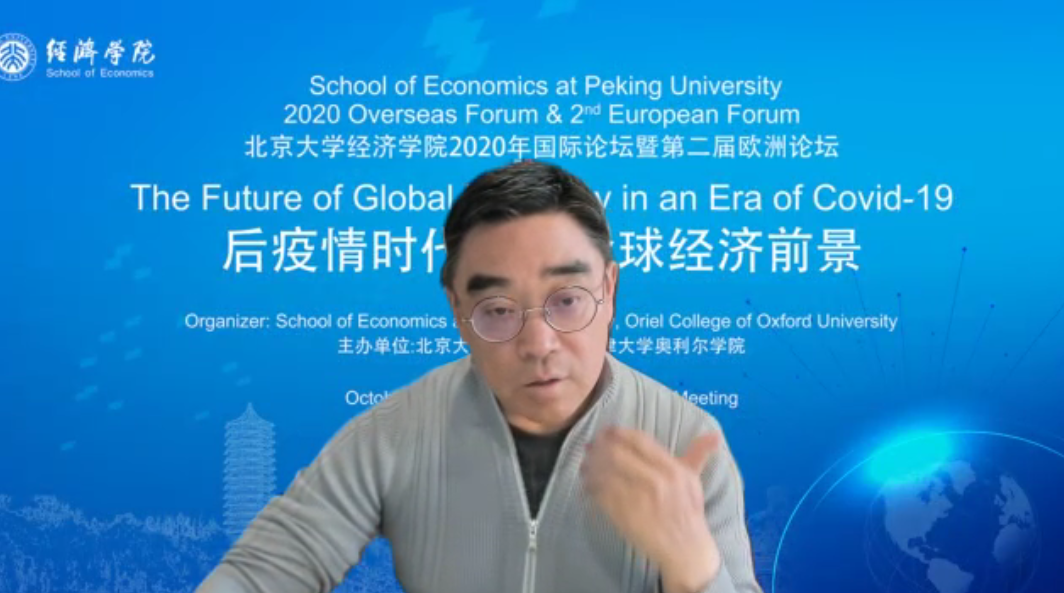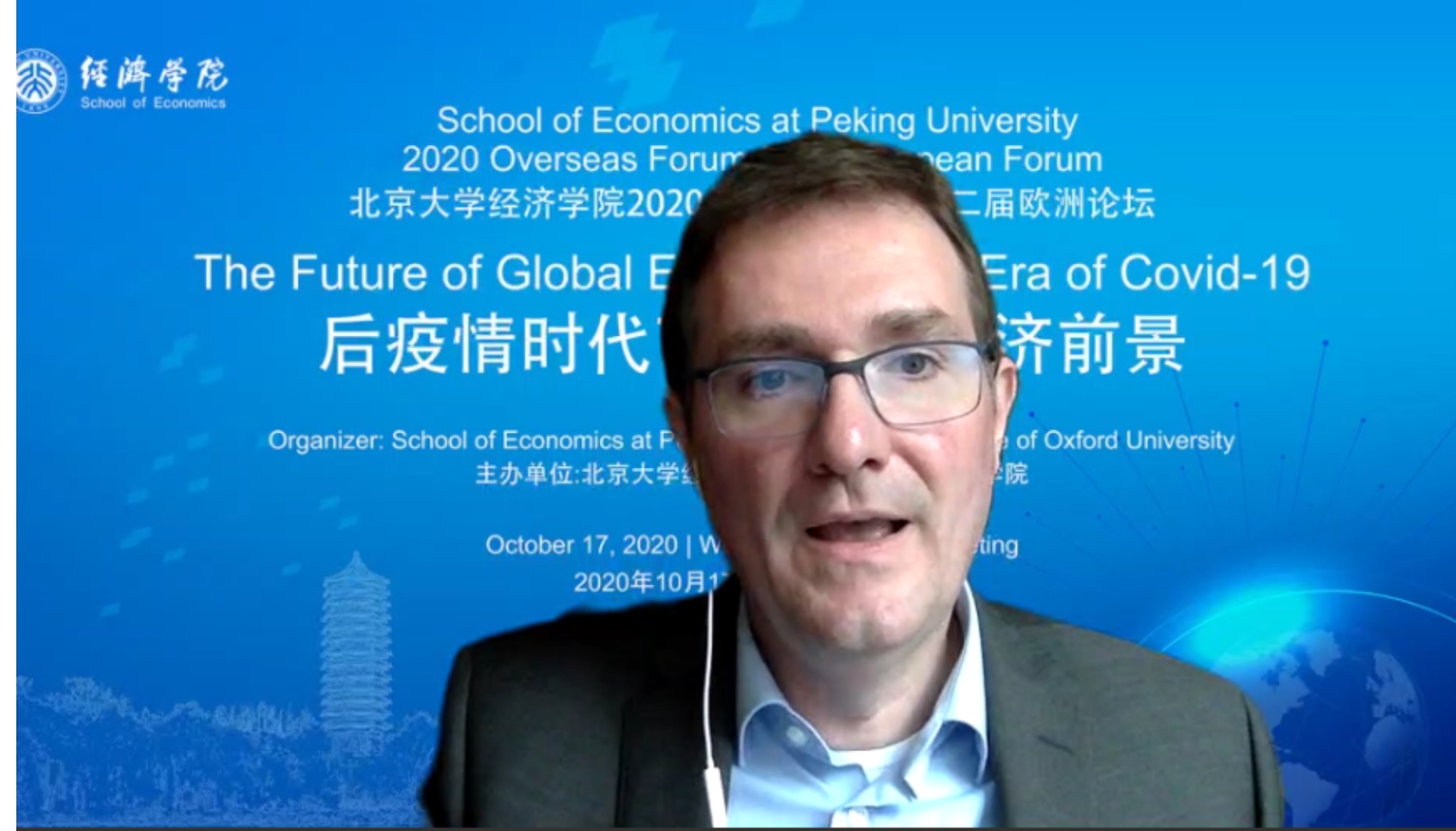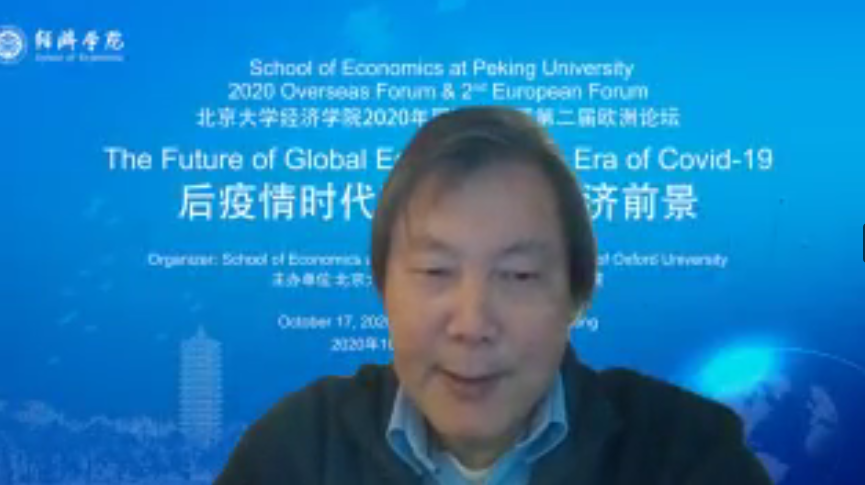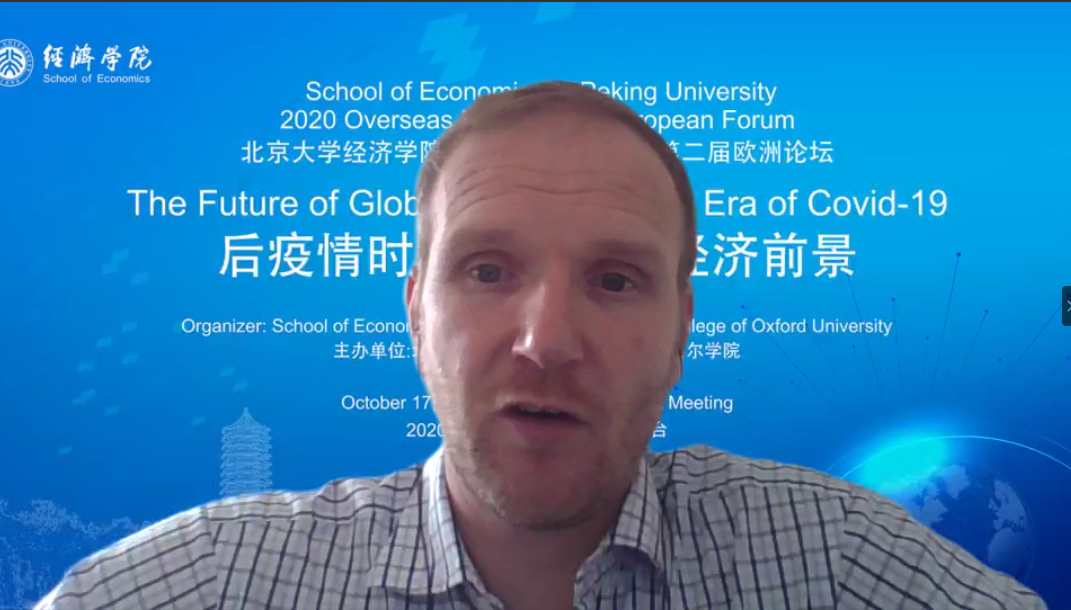Christopher Bowdler
Then, the scholars delivered keynote speeches from the perspective of their own research fields.
Abi Adams-Prassl, associate professor and senior research fellow from the University of Oxford, illustrated the huge impact of the pandemic on UK and US labor market through a set of data and graphs. She pointed out that COVID-19 has affected job demands and job vacancies and exacerbated gender inequality in the labor market. She added that automation and artificial intelligence, job transfer, career training and subsidies, and the construction of social security system are important elements promoting economic growth in the post-pandemic era.
Abi Adams-Prassl
Liu Guoen, Boya professor of Economics at PKU National School of Development (NSD) and vice director of PKU Faculty of Economics and Management, talked about the anti-pandemic efforts carried out by governments of different countries in the world. He said countries that did well in dealing with the pandemic seem to share similarities in culture. Liu also stressed that the impact of the pandemic differs on separate economic fields, and domestic consumption as the most crucial drive for China’s economic development is severely influenced. He then proposed that while preventing and controlling the pandemic on a regular basis, the order and speed of socio-economic development should at least be kept at a basic level, and we should give full play to the role of community-level medical organizations and community hospitals.
Liu Guoen
Mathias Hoffmann, professor of International Trade and Finance in the Department of Economics, University of Zurich, discussed the impact of the pandemic on banking industries. He said the European Banking Union is still incomplete and the global retail financial market is segmented. Therefore, decision-makers are supposed to reorganize the banking industries as soon as possible, establish a common deposit insurance system and encourage the cross-border amalgamation of banking industries.
Mathias Hoffmann
Klaus Adam, Nuffield professor of Economics from the University of Oxford, elaborated on the stability of monetary policy amid COVID-19. He introduced that advanced economies are facing four disadvantageous macro-economic trends: long-term decline of growth rate, long-term decline of natural rate of interest, upward trend of fluctuation in asset price and upward trend of fluctuation in natural rate of interest. Adam stressed that the key to reversing such trends is to boost long-term upward trend.
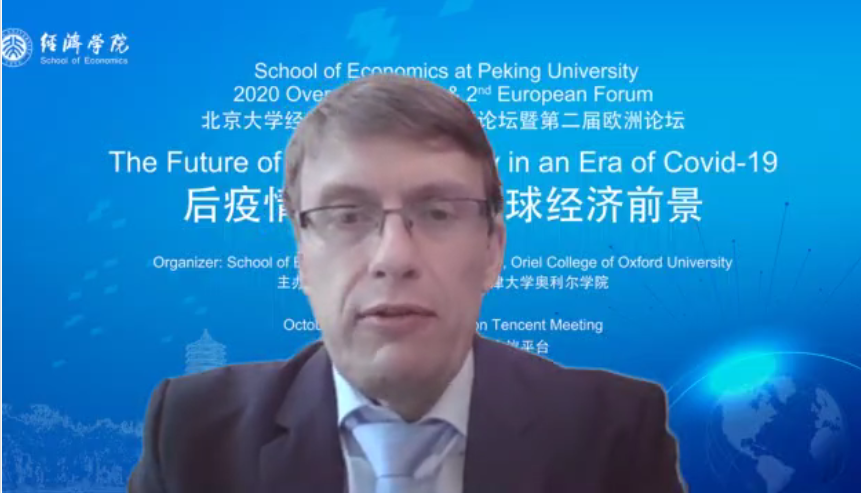 Klaus Adam
Klaus Adam
Liu Minquan, professor of the School of Economics at Peking University, shared his views on the establishment of governmental emergency system and the improvement of global health governance system from the epidemiological perspective. He introduced the concept of Epidemiologically Strong Governance Systems (ESGS), analyzed the logic and response mechanism of multi-dimensional disaster emergency system and organizational structure.
Liu Minquan
Graeme Roy, professor and head of the Department of Economics and director of the Fraser of Allander Institute, University of Strathclyde, mainly analyzed the impact of the pandemic on working pattern and efficiency. Roy echoed the view that the work-from-home pattern might reduce work efficiency. He also shared his views on the future trend and influence factors of the work-from-home pattern from the perspectives of macro-economy, social inequality, workplace preferences.
